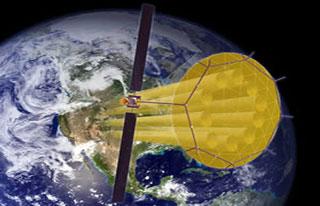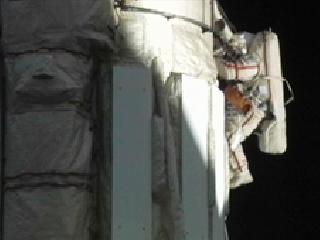NEW DELHI (PTI): Leonid meteor shower will peak Wednesday, but a gibbous moon will play a spoilsport for sky gazers to view the spectacular celestial fireworks.
Leonid meteor shower or shooting stars are expected to graze the sky at a rate of 60-100 on the night of November 17-18, president of NGO SPACE C B Devgun said.
Leonids are a prolific meteor shower associated with the comet 55p/Tempel-Tuttle, he said, adding the meteor shower is visible every year around November 17 when the Earth passes through the stream of the debris of the comet as it crosses the trails of its numerous past apparitions.
"As the night progresses, the number of meteors is expected to rise and if the forecast timings are accurate, it may peak in the wee hours of November 18 numbering hundreds per hour," Devgun said.
However, light from the waning gibbous moon will degrade the viewing of the meteor shower, he said.
The Leonid showers are famous as they list among the most spectacular fireworks in the night sky since long. The great Leonids meteor storm seen in the year 1833 has become a legend. It was followed with similar ones in 1866 and 1867.
However, in 1998 the showers were much below expectation.
The comet 55p/Tempel-Tuttle was discovered on Dec 19, 1865, by E W Liebrecht Tempel and by H P Tuttle independently on 1866 January 6. The orbit is so oriented that the comet intercepts Earth's orbit almost exactly. The comet thus comes quite close to the Earth every few visits.
Meteors are also called as "shooting stars", startling streaks of light that suddenly appear in the sky when a dust particle from outer space evaporates high in the Earth's atmosphere.
Most visible Leonids are between 1 mm and 1 cm in diameter, said the official of Science Popularisation Association of Communicators and Educators (SPACE). For example, a Leonid meteor barely visible with the naked eye in a dark sky, is caused by a meteoroid of 0.5 mm in diameter and weights only 0.00006 gram.
Just before they enter the Earth's atmosphere, Leonid meteoroids travel at 71 kilometres per second, or 213 times as fast as speed of sound, Devgun added.
Usually no sound is heard when a leonid passes by. However, a sonic boom is sometimes heard for very bright Leonid meteors, called fireballs, Devgun said.
Leonid meteor shower to peak on Wednesday
Article Posted on : - Nov 16, 2010
Other Related News
Country's apex military leadership for tri-Service synergy to counter evolving security challenges
The country's top military brass shared their assessment of the operating environment with naval commanders during a multi-day conclave here, as they outlined readiness levels to counter "evolving security challenges" through strong convergence and synergy among the three Services.
 Previous Article
Previous Article Next Article
Next Article












The Indian Air Force, in its flight trials evaluation report submitted before the Defence Ministry l..
view articleAn insight into the Medium Multi-Role Combat Aircraft competition...
view articleSky enthusiasts can now spot the International Space Station (ISS) commanded by Indian-American astr..
view article